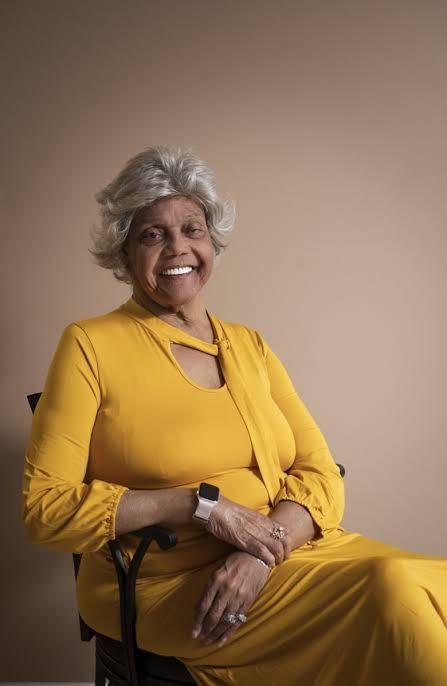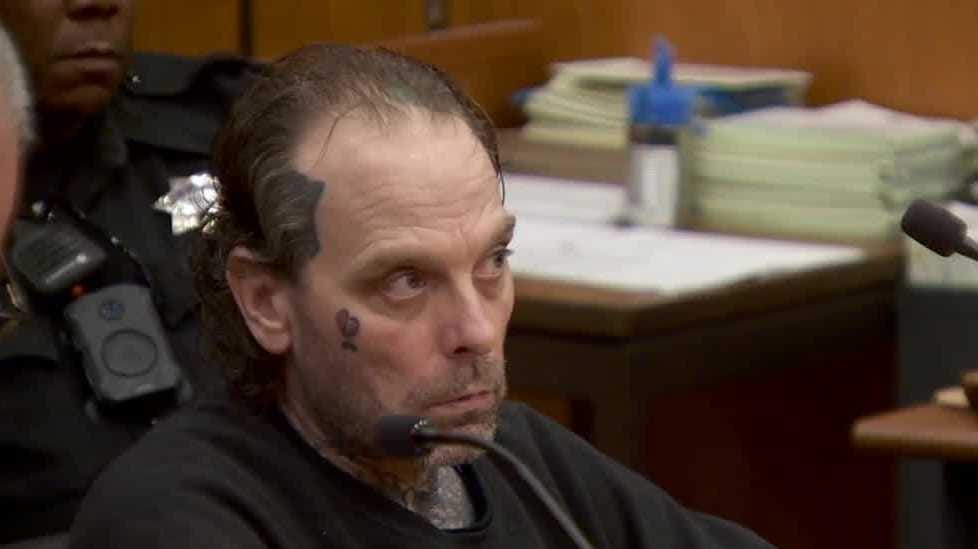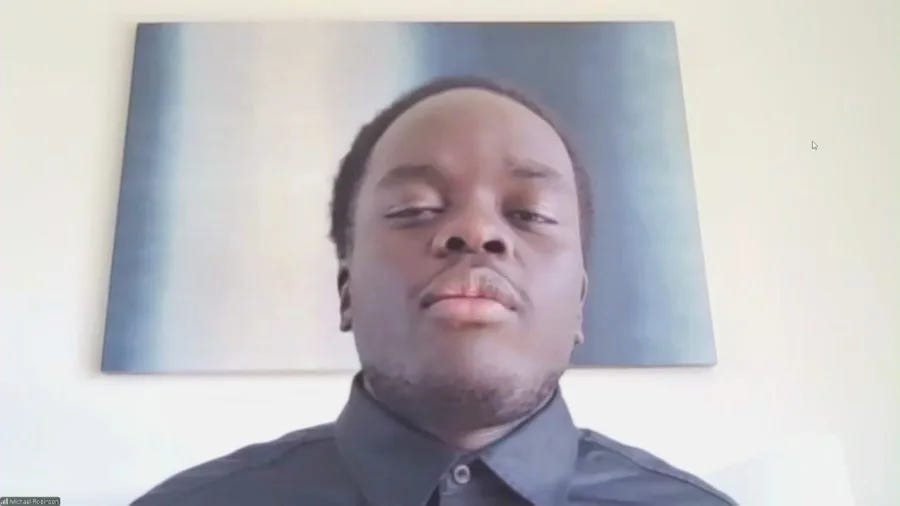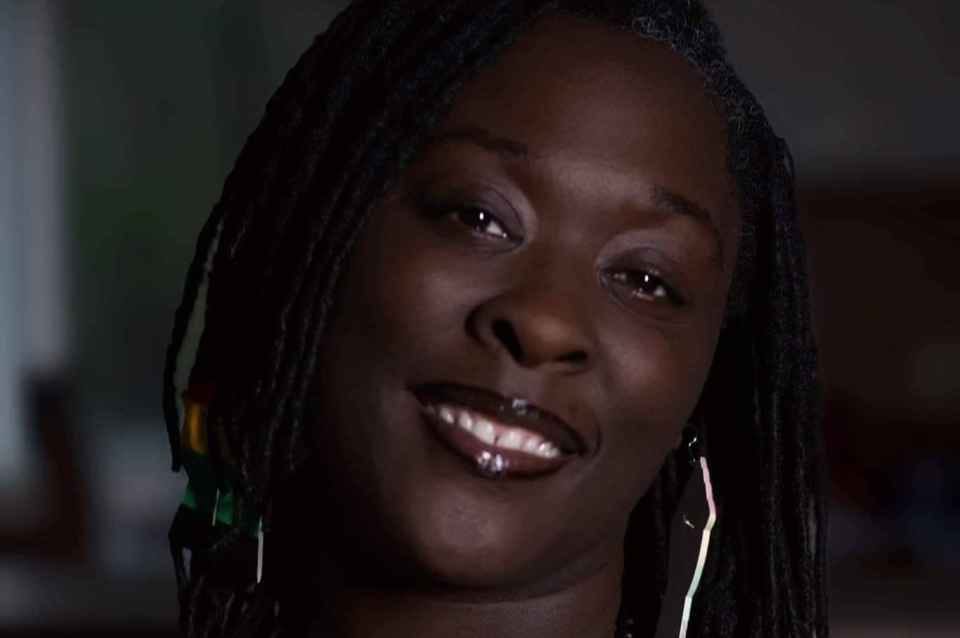Black Monday Briefing – October 20, 2025
Don Lemon Decries Leaked Racist GOP Chats (Oct. 14): A trove of leaked group chat messages among Young Republican leaders has revealed shocking racist and extremist rhetoric. A Politico investigation documented members using slurs against Black people (calling them “monkeys” and “watermelon people”), joking about killing opponents in gas chambers, praising Adolf Hitler, and even calling the mass rape of foes “epic”theguardian.com. The private Telegram chat spanned thousands of messages exchanged over seven months by Young Republican officials in multiple states. Both Republican and Democratic figures denounced the “revolting” messages as beyond the pale of political discourse.
Veteran news anchor Don Lemon publicly responded to the leak on his show the same day. On the October 14 episode of The Don Lemon Show, he condemned the texts as containing “racist, misogynist, and homophobic slurs” alongside “overwhelmingly fascist and dehumanizing rhetoric”podcasts.apple.com. Lemon dissected who the chat participants are and what power they hold, questioning whether anyone should truly be surprised by such hateful talk in GOP youth circles. His commentary underscored alarm that this level of bigotry is festering among people positioning themselves as the party’s next generation of leaders.
The fallout was swift and ongoing. The Young Republican National Federation demanded all involved resign immediately, and at least one state chapter – Kansas – shut down operations entirelytheguardian.com. Within days, several participants lost their jobs or were forced out of positions after the leak became publictheguardian.com. In New York, GOP leaders moved to suspend the state’s Young Republicans chapter amid the furor, insisting that “vile language of the sort made in the group chat has no place” in the partyen.wikipedia.org. Across the board, public backlash and internal censure efforts signaled a scramble to distance the Republican Party from the scandal.
Nationwide Crackdown Continues Punishing Posts About Slain Activist (Oct. 12): Schools, universities, and agencies across multiple states have fired or disciplined dozens of people – many of them Black educators and workers – for social media comments about the assassination of conservative influencer Charlie Kirk. Republican officials have urged the public to report such posts, leading to investigations, dismissals, and even a student expulsion over a reenactment skit. Free speech advocates warn the wave of crackdowns is silencing debate and targeting Black voices in academia and government. Federal and state leaders are being pressed to halt what critics call a politicized purge of lawful expression.
Fired Auburn Lecturer Sues, Cites First Amendment Retaliation (Oct. 16): An Alabama English instructor fired after posting her opinions on Charlie Kirk’s death has filed a federal lawsuit against Auburn University. Candice Hale, who is Black, alleges she was suspended, banned from campus, and terminated for a Facebook post criticizing the far-right activist – despite officials finding she posed no threat. Her suit argues Auburn violated her free speech rights as a government employer. Hale seeks lost wages and a ruling affirming that speaking on public issues, like political figures and hate speech, is protected for public university staff.
Congressman Threatens Town Funding Over Teacher’s Kirk Comment (Oct. 10): In Wisconsin, Rep. Derrick Van Orden vowed to strip a small city of federal dollars after a high school math teacher noted online that Charlie Kirk once said some gun deaths are “worth it” for the Second Amendmentgoverning.com. The teacher, a Black woman, was suspended amid community uproar. Civil rights groups slammed Van Orden’s threat as an abuse of power aimed at intimidating educators for personal views. Local officials say the episode has had a chilling effect on teachers discussing controversial topics even outside the classroom.
Report: Book Bans ‘New Normal’, Target Black and LGBTQ Stories (Oct. 2): A new PEN America study warns that school book bans have escalated into a disturbing routine. In the last school year there were nearly 7,000 cases of books pulled from shelves – often titles about U.S. racism, Black history or queer identities. PEN says politicians and advocacy groups are pushing censorship laws and “do not buy” lists of certain books, with federal pressure under the Trump administration fueling the trend. Educators and free speech advocates call the wave of bans unprecedented and urge renewed protection of students’ right to read authentic stories from Black and other diverse perspectives.
Orangeburg Adopts Hate Intimidation Ordinance (Oct. 8): The Orangeburg, S.C., City Council unanimously passed a new hate intimidation law to protect residents from threats and harassment based on race, religion, gender, or sexual orientation. Under the ordinance – spurred by community reports of racist incidents – causing fear or harm due to bias can now bring a $500 fine and up to 30 days in jail. Officials say the measure, believed to be the first of its kind in the region, reinforces that acts of hate will not be tolerated. Local civil rights leaders praised the city’s move as a model for proactive hate crime prevention.
N.C. Official Censured for ‘Too Many Black Employees’ Remark (Oct. 7): The town board in Hope Mills, North Carolina, formally censured Commissioner Elyse Craver after multiple staff reported her complaining that the town was “hiring too many Black employees.” In a surprise 3-2 vote at a public meeting, the board rebuked Craver for conduct unbecoming and launched an outside investigation into a hostile work environment. Craver, who is white, denied making racist comments and called the censure a political ploy as she runs for reelection. Black residents – many in attendance – said the reprimand was necessary to show the town rejects bias in its hiring and services.
Mississippi Campus Hanging Death Ruled Suicide, Family Protests (Oct. 14): The death of Trey Reed, a 21-year-old Black student found hanging from a tree at Delta State University, has been officially ruled a suicide. State investigators say an autopsy found no signs of assault, but Reed’s family and civil rights activists insist the case remains suspicious in a state with a lynching history. They point to an independent examiner’s report of head trauma and rumors of earlier threats. This week relatives – joined by attorney Ben Crump – held a campus rally demanding a federal probe and release of all evidence. Police say the FBI has been briefed and will review any new information.
Deputy Faces Trial After Black 911 Caller’s Shooting (Oct. 19): Jury selection began for the Illinois sheriff’s deputy charged with murdering 36-year-old Sonya Massey, a Black woman fatally shot in her own home after she called 911. Prosecutors say Deputy Sean Grayson arrived for a prowler call and inexplicably opened fire when Massey – who had mental health struggles – picked up a pot of hot water on her stove. The killing, in July 2024, sparked outrage over police use of force against Black residents seeking help and led Illinois to mandate more transparency in officer hiring. Grayson, who is white, has pleaded not guilty to murder and faces up to life in prison if convicted.
Feds Probe Portland Police for Alleged Protester Bias (Oct. 3): Hours after Portland officers arrested a right-wing blogger during an ICE facility protest, the Trump Justice Department opened a “full investigation” into whether the city’s police favor left-wing demonstratorsopb.org. Two DOJ deputies sent officials a memo demanding bodycam video and records on the arrest of influencer Nick Sortor and an earlier assault on a far-right journalist. Press Secretary Karoline Leavitt accused Portland police of siding with “violent Antifa mobs” and even floated cutting federal funds to the city. Portland’s police chief welcomed outside scrutiny but rejected claims of bias, noting officers had actually arrested multiple protesters that night. Local leaders blasted the inquiry as political retaliation aimed at a city that has reformed its crowd control tactics since 2020.
Watchdog: NYPD Gang Database Riddled With Errors (Oct. 16): An independent Inspector General review has found the New York Police Department’s secretive gang database to be deeply flawed, inflating gang labels for thousands – disproportionately young Black and Latino men. Auditors discovered people were added based on vague criteria like wearing a certain color, and 98% had never been charged with a gang crime. Community advocates, including the G.A.N.G.S. Coalition, are calling on NYPD to purge the database and halt sweeps that treat innocent Black youth as gang members. Police officials say they’ll consider the IG’s recommendations to tighten standards and improve oversight of the controversial list.
NYPD to Scale Back Protest Unit After BLM Settlement (Oct. 3): New York City police will limit deployments of its Strategic Response Group (SRG) – a specialized riot control unit – under a legal settlement stemming from 2020 Black Lives Matter protest lawsuits. As of this month, the SRG can no longer police routine protests unless an incident commander deems crowd conditions severe. Civil liberties groups said the change is overdue, noting SRG officers were blamed for excessive force at racial justice rallies. NYPD officials confirmed a tiered response plan took effect Oct. 3 to ensure specialized riot squads are a last resort. Advocates call it a win for First Amendment rights and Black-led movements that had faced militarized crackdowns.
Philly’s ‘Will Power’ Program Writes 1,000 Wills for Black Homeowners (Oct. 15): A Philadelphia initiative offering free estate planning has helped more than a thousand Black low-income residents draft wills and secure their property. The “Will Power” program, launched in 2022 through Community Legal Services, connects seniors like 72-year-old Vendetta Stephens with volunteer attorneys to formalize their wishes. Local organizers say it addresses a major wealth-stripping problem: over 70% of Black Americans lack wills, often leading to “tangled titles” and family homes lost after an owner’s death. At a church celebration this week, participants expressed relief that their legacies – homes, savings, even personal items – will be passed on smoothly to loved ones.
Norfolk Homebuyers Get $60K Boost Through Viral Program (Oct. 9): A longstanding Norfolk, Virginia program that provides up to $60,000 in down-payment aid to first-time homebuyers has drawn a surge of interest after going viral on social media. The city’s HomeNet initiative offers forgivable loans to moderate-income buyers who purchase within Norfolk and stay at least 10 years. Officials say the program, in place since 1996, aims to close homeownership gaps by filling the affordability “appraisal gap” for families of color. Norfolk’s housing director said inquiries have flooded in nationwide after posts highlighting that participants owe nothing if they stick with their home – a rare form of equity-driven assistance now being studied by other cities.
Court Orders Mississippi to Redraw Black-Diluting Districts (Oct. 17): A federal court has ruled that Mississippi’s state Supreme Court election districts violate the Voting Rights Act by diluting Black voting strength. The three at-large districts haven’t changed in 40 years – a period in which only four Black justices ever served, all appointed and never overlapping. Plaintiffs argued the map packed Black voters so that none of the districts would elect a Black justice under normal conditions. The court’s order means lawmakers must create a more equitable district configuration before the next high court elections. State officials are weighing an appeal, but advocates call the ruling a major victory to ensure the state’s top bench reflects its 38% Black population.
Supreme Court Hears Push for Second Black District in Louisiana (Oct. 15): The U.S. Supreme Court convened a rare re-argument in a Louisiana redistricting case that could restore a Black-majority congressional district. Civil rights attorneys told the justices that Louisiana’s current map – with one Black district out of six, in a state nearly one-third Black – unlawfully packs Black voters to limit their influence. A lower court had ordered a second Black opportunity district last year, but the state appealed. The high court’s questions hinted at skepticism of Louisiana’s position, with some justices noting the similarity to an Alabama case where a second Black district was required. A ruling is expected by early 2026 and will determine whether Black Louisianans gain fair representation in Congress.
Civil Rights Groups Slam New Fair Housing Chief’s Record (Oct. 9): The Senate’s confirmation of Craig Trainor to lead HUD’s Fair Housing office is drawing sharp rebukes from the NAACP Legal Defense Fund and others. Advocates note Trainor has criticized diversity and inclusion efforts and defended landlords in discrimination cases. They fear his appointment by President Trump signals rollbacks of enforcement against housing bias. LDF’s president Janai Nelson called Trainor’s elevation “an attack on our power and dignity,” warning that federal civil rights protections in housing may be weakened when Black families still face widespread rental and lending discrimination. HUD officials did not comment on Trainor’s plans, but Democratic lawmakers promise close oversight of his office.
MacKenzie Scott Donates Record $63M to Morgan State (Oct. 11): Philanthropist MacKenzie Scott, formerly married to Amazon founder Jeff Bezos, has given a $63 million unrestricted gift to Morgan State University – the largest donation in the Maryland HBCU’s history. The surprise grant, announced by Morgan’s president, follows a $40 million gift Scott made to the school in 2020. University officials say the funds will bolster the endowment, student scholarships, and strategic initiatives as Morgan seeks R1 research status. Students on campus reacted with excitement, noting Scott’s generosity has now exceeded $100 million to Morgan State alone. The contribution is part of Scott’s ongoing pledge to support historically Black colleges, and leaders hailed it as a transformative boost to Black higher education.
Arthur Blank Pledges $50M for Atlanta HBCU Students (Oct. 13): Home Depot co-founder Arthur Blank announced a $50 million investment benefiting four Atlanta HBCUs – Spelman College, Morehouse College, Clark Atlanta University, and Morris Brown College. The 10-year scholarship fund will primarily help juniors and seniors who need financial aid to graduate. Blank’s foundation detailed allocations including $10M for Spelman’s innovation lab, $6M to upgrade athletic fields at Clark Atlanta and two Georgia HBCUs, and millions toward scholarships and even new football helmets. HBCU leaders praised the commitment for targeting the “last mile” – enabling more Black students to complete degrees rather than stopping out due to costs.
Report: HBCUs Lead on Student AI Use, Lag in Support (Oct. 7): A new survey finds that nearly 98% of students and 96% of faculty at HBCUs have already used generative AI tools – one of the highest adoption rates in higher education. The report, titled “The Shift Ahead: HBCUs, Artificial Intelligence, and a New Vision for Higher Education,” notes students and instructors at over 50 Black colleges are embracing AI for everything from tutoring and lesson planning to career prep. However, fewer than half say their institutions have formally integrated or trained people on AI, and many cite unreliable internet or lack of access as barriers. Researchers urge investment in campus infrastructure and curriculum so HBCUs – which have a history of “turning constraint into creativity” – can fully harness AI’s promise for their communities.
Black History Museum Opens on Chicago’s West Side (Oct. 11): The new African American Museum and Education Center held a ribbon-cutting in Chicago’s historically Black Austin neighborhood – the West Side’s first museum dedicated to local Black history. Housed in a former library building, the center will feature exhibits on influential Black leaders and everyday life, a recording studio, and classrooms for youth workshops. At the opening, longtime West Side residents celebrated seeing their stories preserved in their community. Elected officials who helped fund the project say it will serve as both a cultural archive and a hub empowering new generations through knowledge of Chicago’s Black heritage.
Trans Trailblazer Miss Major Dies, Leaving a Legacy (Oct. 13): Famed Black transgender activist Miss Major Griffin-Gracy has died at 78. A veteran of the 1969 Stonewall uprising, Miss Major spent decades fighting for LGBTQ+ rights, racial justice, and support for transgender women of color. Admirers knew her as “Mama” – a warm mentor to younger trans people navigating prejudice and poverty. News of her passing prompted tributes from advocacy groups and a statement from the National LGBTQ Task Force calling Miss Major a pioneer whose life’s work “opened doors for so many others”. Community organizations in Oakland, where she most recently lived, announced plans for a public celebration of her life and activism.
‘No Kings’ Rallies Draw Thousands Nationwide (Oct. 18): Protesters in at least a dozen U.S. cities marched under the banner “No Kings” in coordinated peaceful rallies opposing authoritarianism and political violence. From Atlanta to Los Angeles, multiracial crowds – many led by Black activists – chanted and held signs rejecting efforts to overturn elections or silence dissent. Organizers timed the demonstrations as a rebuke to what they call “anti-democratic moves” by the Trump administration, including threats to send troops into cities and punish perceived enemies. Local officials largely welcomed the rallies; no major unrest was reported as police facilitated the marches. Participants vowed to continue standing up for voting rights, rule of law, and the principle that “America has no kings – only the people.”
Appeals Court Upholds N.C. Man’s Hate Crime Conviction (Oct. 10): A federal appeals court has affirmed the conviction and 41-month sentence of Marian Hudak, a white Concord, N.C., man found guilty of violently targeting people for their race. Evidence showed Hudak went on a two-day rampage in 2021, firing a shotgun into the home of a Black family and later pointing a gun at a Latino motorist, while shouting racial slurs. He was convicted on two federal hate crime counts last year. Hudak appealed, arguing legal technicalities, but the Fourth Circuit panel unanimously rejected his claims and upheld the prison term. The decision was welcomed by civil rights advocates, who note that successful hate crime prosecutions are relatively rare and help deter racially motivated attacks.
California Man Gets Life for Hate-Crime Killing of Black Veteran (Oct. 12): A Sacramento judge sentenced Joseph DeMarco to life in prison for the first-degree murder of James “JR” Roseman, a 55-year-old Black U.S. Air Force veteran. In 2016 DeMarco opened fire on Roseman in a parking lot after a brief encounter, later bragging to friends that he wanted to kill a Black person. Jurors convicted DeMarco and found the murder was committed as a hate crime, citing racist messages from his social media. At sentencing, Roseman’s family remembered him as a devoted father and coach who survived military service only to be gunned down at home due to hate. The judge told DeMarco the penalty ensures “you will never again harm another innocent person because of the color of their skin.”
Teens Detained in Simi Valley Hate Attack on Black Classmate (Oct. 13): Three California teenagers will be held in juvenile custody for a racist assault on a Black high school student that outraged the Simi Valley community. Investigators say the 18-year-old victim, Michael Robinson, was harassed with racial slurs and beaten in an incident the Ventura County DA labeled a hate crime. In closed juvenile court hearings this month, the judge ordered two of the assailants – ages 15 and 16 – to remain in detention, with a third teen’s disposition sealed. Robinson survived with injuries and has returned to classes with support from local NAACP members. School officials, criticized for initially downplaying the attack, announced new anti-bias training for students and staff as the city grapples with what the mayor called a “wake-up call” about persistent racism among youth.
Texas DA Secures Rare Hate Crime Plea in Racist Threat Case (Oct. 9): A Travis County, Texas man pleaded guilty to a hate crime charge after making violent threats toward a group of young Black men. Prosecutors say Christopher Morgan shouted racist epithets and threatened to shoot the men at an Austin parking lot last year. The Travis County District Attorney’s Office pursued hate crime enhancements, and Morgan ultimately pleaded to terroristic threat with a hate-crime finding. He will serve jail time and probation under the plea. Officials noted it’s unusual to obtain a formal hate crime conviction at the state level in Texas, where such findings often get dropped, and hailed the outcome as a message that bias-motivated intimidation won’t be tolerated. Community advocates in Austin hope the case encourages more rigorous enforcement of hate crime laws to protect Black residents.
Federal Judge Calls Out Mississippi’s Error-Filled Water Ruling (Oct. 7): A U.S. judge in Mississippi took the unusual step of admitting a recent ruling he issued – in a case over Jackson’s drinking water system – contained numerous errors, but then declined to explain them. Last month Judge Henry Wingate’s opinion, which sided with state officials in a dispute about water management, referenced legal points from entirely unrelated cases, puzzling attorneys. The state had asked for clarification due to the mistaken citations and facts. In an order this week, Judge Wingate acknowledged the mistakes but refused to elaborate, simply stating that the errors “do not affect the outcome” and that the decision stands. The lack of explanation has only amplified concerns among Jackson residents and experts who already doubted the ruling’s reasoning on the majority-Black city’s water rights.
Feds to Monitor Memphis Police After Acquittals in Nichols Case (Oct. 10): The U.S. Justice Department announced it will closely watch the Memphis Police Department following the acquittal of three officers charged in the 2023 beating death of Tyre Nichols. A Tennessee jury found the ex-officers not guilty of second-degree murder earlier this year in state court, even as two other officers pleaded guilty and all five Black officers involved await sentencing on federal civil rights charges. Community leaders in Memphis expressed outrage at the state trial’s outcome and appealed for federal intervention. DOJ officials said a pattern-or-practice investigation launched into MPD’s use of force will examine training, supervision, and any systemic abuses, with Nichols’s case a key example. Nichols’s family, still pursuing justice, welcomed the federal scrutiny as a step toward accountability after what they called a “miscarriage of justice” in the local prosecution.
NAACP Legal Fund Condemns Trump’s Martial Law Talk (Oct. 6): The NAACP Legal Defense Fund “firmly denounced” President Trump’s recent suggestion of sending the National Guard into high-crime cities like Chicago, calling it an unlawful “war on American cities.” In an Oct. 6 statement, LDF said deploying military force to predominately Black urban communities under the pretext of fighting crime would violate residents’ constitutional rights and echo the darkest chapters of civil rights repression. The civil rights law group urged Congress and the courts to check any such attempt by the White House, noting that local crime is best addressed by community investment, not soldiers in the streets. Chicago officials also blasted the President’s remarks, with the police superintendent stating violence is falling and “we need resources, not martial law.” (Trump’s floated plan has not been formally ordered, but it has injected new tension into federal-local relations.)
Florida Settles Suit Over Arrests of Ex-Felons for Voting (Oct. 13): Florida has quietly agreed to a legal settlement after dozens of citizens – many of them Black – were arrested for voter fraud despite believing they were eligible to vote. The state had charged 20 former felons with voting illegally in the 2020 election, even though each person said they received voter registration cards or guidance from officials that led them to vote. Faced with lawsuits and public backlash, Governor DeSantis’s administration will drop outstanding charges and create a clearer database to verify voter eligibility for people with past convictions. Advocates say the crackdown had a chilling effect on Black voter turnout and welcome the settlement, though they note some people already suffered jail time, humiliation, and legal costs. Florida officials did not admit wrongdoing but agreed to improve notification and training to prevent future confusion over voting rights restoration.
Justice Dept. Moves to Dissolve Ferguson Policing Consent Decree (Oct. 18): The Trump administration has petitioned a federal court to terminate the consent decree overseeing police reforms in Ferguson, Missouri – a pact put in place after the 2014 killing of Michael Brown. DOJ lawyers argue the city has made sufficient progress in training, use-of-force policies, and community engagement, and that continuing federal monitoring “unduly burdens” the majority-Black St. Louis suburb. Local activists strongly disagree, pointing out that Ferguson Police still have few Black officers and have faced recent allegations of racial profiling. The monitor’s latest report noted some compliance improvements but cautioned that key benchmarks – such as unbiased policing – have not yet been achieved. A judge will decide whether to lift the decree, amid fears from residents that without oversight, hard-won changes in Ferguson could backslide.
Texas Bans Diversity Hiring at State Universities (Oct. 12): Texas state universities have officially ceased all diversity, equity and inclusion (DEI) programs in hiring and student services as a new law took effect this month. The law, passed by the Republican-led legislature, prohibits public colleges from considering race or ethnicity in employment and bans offices dedicated to supporting marginalized groups. University administrators dissolved DEI committees and reassigned staff, with some campus cultural events and mentorship programs for Black and Latino students now in limbo. Governor Greg Abbott praised the move, claiming “merit will rule” and calling DEI initiatives discriminatory. Black student groups and faculty blasted the change, noting persistent racial gaps in enrollment and graduation. They warn the ban will reverse years of progress in creating inclusive campus climates – and are exploring legal challenges, arguing the law undermines equal opportunity in higher education.
Appeals Court Revives Bruce’s Beach Reparations Case (Oct. 19): A California appellate court has reinstated a lawsuit by the descendants of Willa and Charles Bruce seeking additional restitution for the wrongful seizure of Bruce’s Beach, a Black-owned resort in Manhattan Beach taken by the city in 1924. Los Angeles County had famously returned the beachfront property to the Bruce heirs in 2022 and later bought it back for $20 million. But the family’s suit argues the city itself owes damages for the decades of lost wealth and income under the racially motivated condemnation. A trial judge had dismissed that claim, citing the prior transfer and sale. The appellate panel disagreed, ruling the Bruce heirs deserve their day in court to pursue full reparations beyond the land’s return. Manhattan Beach officials, who issued a formal apology in 2021, say they are reviewing the decision. The case is being closely watched as a potential precedent for other Black families seeking compensation for historic land takings.
Justice Dept. Urges Leniency in Brittany Martin Sentencing Review (Oct. 7): The U.S. Department of Justice has filed a rare statement of interest supporting a sentence reduction for Brittany Martin, a Black Lives Matter protester in South Carolina whose four-year prison term for breaching the peace sparked outrage. Martin, a 34-year-old Black mother, was convicted in 2022 for her words during a protest – prosecutors said she yelled threats, which she denies – and given a sentence far above typical guidelines. DOJ’s Civil Rights Division told a state judge that Martin’s punishment appears excessive and may reflect unconstitutional considerations of her exercise of free speech. Martin has already served over a year, during which she gave birth in custody. South Carolina officials have resisted calls for clemency. A hearing is set for next week on a motion to reconsider her sentence, with national civil rights groups and now the federal government weighing in on her side.
Police Search for Missing 23-Year-Old After Remains Found (Oct. 19): Philadelphia authorities are seeking the public’s help in the case of Kada Scott, a 23-year-old Black woman who went missing from her job at a nursing home on Oct. 4. This weekend investigators discovered human remains in a shallow grave behind an abandoned school, believed to be Scott’s but pending DNA confirmation. A 21-year-old man acquaintance has been arrested and charged with kidnapping in connection to her disappearance. Police have not ruled out additional suspects and ask anyone with information to call their tip line. The case has highlighted a troubling pattern: the suspect was out on bond from a prior alleged kidnapping, raising community questions about why an accused violent offender remained free. Scott’s family is in mourning and pushing for answers as the investigation continues under intense public scrutiny.
FBI Data Shows Black People Still Top Target of Hate Crimes (Oct. 13): New federal hate crime statistics for 2024 indicate that crimes against Black Americans remain the most common bias incidents reported, even as overall hate crime numbers dipped slightly from a record high. The FBI’s annual report documented over 2,000 anti-Black hate crime incidents last year – nearly one-fifth of all reported bias crimes nationally – ranging from vandalism and threats to violent assaults. Advocacy groups note the data is incomplete, due to many jurisdictions not reporting, and argue the true number is higher. The Justice Department says it is prioritizing enforcement, pointing to recent federal convictions for racist attacks in North Carolina and elsewhere. But civil rights leaders emphasize that Black communities continue to face disproportionate hate-fueled violence, and they urge improved local response and prevention resources across the country.
Federal Judge’s Gaffe-Filled Ruling Draws Criticism (Oct. 8): Legal experts are baffled after a Mississippi federal judge refused to explain an order he issued last month that was riddled with errors and unrelated citations. Judge Henry Wingate’s September ruling in a civil case – which referenced wrong case law and facts from completely different matters – led the state’s attorneys to request clarification. In a terse follow-up on Oct. 8, Judge Wingate acknowledged the mistakes but declined to correct them, asserting they didn’t change the outcome. Attorneys involved say the lack of transparency undermines confidence, especially as Wingate’s decision favored state officials in a politically charged dispute. Court observers note that while judges occasionally issue errata, it’s highly unusual to simply move on from errors without explanation. The incident has renewed calls for continuing education and peer review for the judiciary to avoid major lapses that could erode public trust.
Kansas City Elects First All-Black City Council (Oct. 17): Kansas City, Missouri marked a historic first as its new City Council was sworn in with Black members holding all five at-large seats. The transformation came after a grassroots push to improve representation in the majority-minority city. Voters elected three Black women and two Black men citywide, replacing several white incumbents, while Black council members also continue to represent several districts. Mayor Quinton Lucas said the milestone is a sign of progress but noted challenges remain in addressing racial disparities in housing, policing and economic opportunity. The new council immediately tackled one such issue, voting to strengthen the city’s oversight of affordable housing developers amid concerns about gentrification in long-neglected Black neighborhoods. Community leaders praised the council’s inclusive agenda, saying the election shows Kansas City “walking the walk” on empowering Black leadership in local government.
This kind of deep verification and underreported coverage takes serious time, labor, and fact-checking muscle. If you value this work and want to keep it going, consider becoming a paid subscriber your support helps me carve out the hours it takes to cut through the noise.














I've read notes on a few of these articles, and read three in depth. You have compiled the most comprehensive journal Xplisset-ly aligned with Black and Brown peoples' encounters with legislation, enforcement, and interpretation of complex codes of conduct with baked in biases.
Relevant details, citations, no fluff.
X great to have you back. Thanks man for this. Such informative journalism. I had no idea some of this was going on the Simi valley incident is just terrible. And the tragic incident in Sacramento. R.I.P. to that veteran hero. Prayers for him and his family. Thank you X for pointing this out. And shoutouts to Mackenzie scoot for donating to HBCU Morgan State and Arthur Blank. Always good to see that.